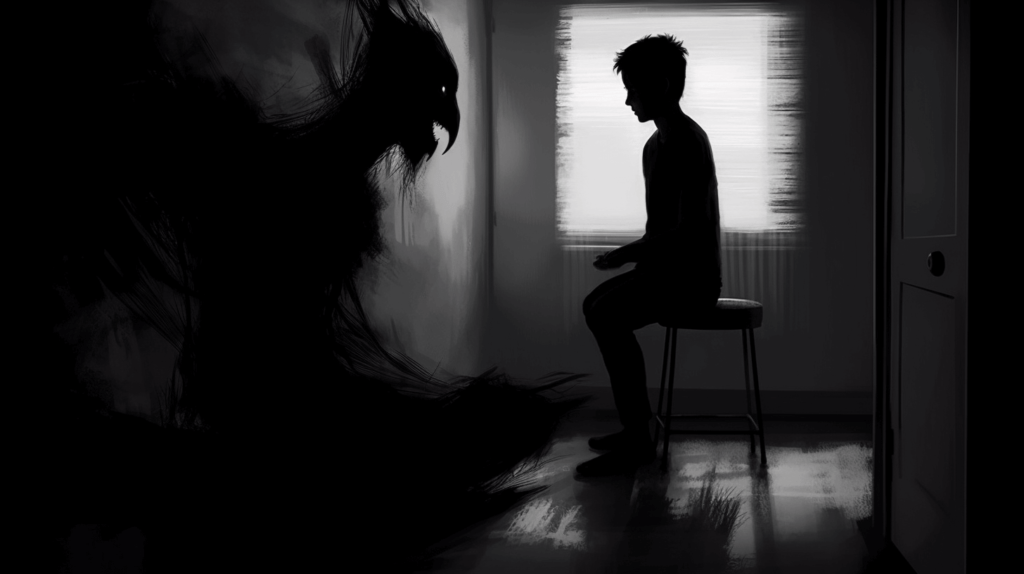Science
The Monk Who Saw the Future: Did an 11th-Century Benedictine Beat Astronomers?
17 February 2026

According to data from the World Health Organisation, 700,000 people take their own lives every year. Though the total has fallen by almost 100,000 over the past two decades, statistics are undergoing and alarming “rejuvenation.” The WHO has set the goal of reducing the suicide rate among children and adolescents by 10% over the next decade.
According to Young Scientists USA, a magazine about scientific activities among young people, a main factor in preventing suicide is emotional attachment to family. A study published in Social Development, another scientific journal in the US, shows clearly that the family a child is brought up in has a huge impact on shaping the ability to regulate emotions. This ability is a basic psychological function in determining the direction of the personality’s further development and maturation. Dysfunctions in this primary social unit are the most common cause of mental disorders and illnesses at the developmental age, and impact the entire adult life.
She’s 15 and her body shows traces of suffering that “would be enough” to write a tragic biography of a woman decades older. Forearms covered with dense scars, on one leg a vulgar inscription is carved, likely with a razor. She always wears a band around her neck, not wanting the world to see signs of her action. The one over which it’s disputed whether it was an act of courage or cowardice.
It’s hard to imagine how a child can endure so much pain, even more so when the pain is self-inflicted. Recklessness or irresponsibility can’t be turned to here. Ania knew exactly what she was doing. She wanted to end “it.” Not to think, not to feel, not to be. “It” – that is, living with the constant feeling that she’s not perfect, i.e., the way her parents want to see her. She tried endlessly, did everything not for herself but for them, to hear at least a word of appreciation, an expression of acceptance, and above all, of love.

Much has been written about love, and lots of moving works have been created. Art praises it, and we’re all constantly looking for it. The most poignant disease for a human is its absence. Especially when we talk about the love of parents for their child. Ensuring safety, unconditional acceptance, support, care, concern, and showing tenderness generates a favorable environment, necessary for healthy, harmonious development. As in the past love was to be understood and expressed through the products of culture, so the development of thought and science in the twentieth century has resulted in the emergence of many theories, including those that have been examined empirically and confirmed by research. They help in understanding why the role of parental love for a child is so important. It’s hard to believe that a deficit in the metaphysical factor, which it is, can cause a serious disease with its troubling prognosis.
According to the WHO, suicide is the second leading cause of death among people from 15 to 29. DSM-5, the American Psychiatric Association’s classification of mental illnesses and disorders, describes successive stages in suicidal processes. Initially, in a young person’s mind a conviction about insurmountable difficulties appears. They see the world in dark shades. Aggression, an automatic reaction to threatening external factors, finds no outside outlet and creates a festering wound that won’t heal, causing deeply felt, unbearable pain. Exposed to such suffering, the young person’s psyche gradually adapts to extreme conditions and successively “turns off” self-preservation mechanisms. There’s a resigned attitude, withdrawal, loneliness, a sense of abandonment. Relief can come through the world of fantasy, where desires that dominate are not to feel anymore, not to be, to disappear. In this deadly process’s final stage, the suffered may set their affairs in order by making a will or farewell letter, for example, then attempts to take their own life at the very end.

Donald Winnicott (1896–1971), a British pediatrician, used in his work one of the important achievements of his time, as psychoanalysis was. In Winnicott’s view, the way an adult will function depends on their life’s earliest moments and is based on the early relationship with the mother. Winnicott was an optimist and in his statements he clearly emphasized that being an ideal parent free of mistakes is simply impossible. He presented a more realistic, achievable goal, formulating conditions that must be met to be “good enough” for the child.
First: the awareness of our child’s vulnerability. A newborn is a being entirely involved in signaling their most important needs. The first weeks of our child’s life are a struggle for survival. Therefore, according to Winnicott’s recommendations, it’s important to adapt yourself to their needs. This is a difficult challenge, especially for novice parents, yet this adjustment will cause the child to develop one of the fundamental psychological structures, a sense of security, which allows them to cope with the demands of everyday life.
Second: let a child be angry. A common phrase in adult language, “being bad,” is a child’s way of learning and getting to know the world. They check what their limits and possibilities are, and show by way frustration and anger their inability to realize their intentions. The possibility to uninhibitedly express them among calm adults who allow this to happen causes the child to become aware of their inner experiences and emotions, not always shared by people in their environment. The child duly produces an apt self-image, which in turn leads to acquiring the ability to control their emotions. Teenage rebellion, a natural developmental process, is precisely “breaking out” for independence, the need to “separate” from the mother, to have the autonomy they can allow themself only when their difficult emotions have been accepted and somehow validated by the carer.
Third: a child can’t be “too well-behaved.” According to Winnicott, “politeness” of that sort is a real cause for concern. The child should express their emotions and behaviors, being the one time in his or her life they can do so in a socially acceptable way. When parents are excessively punishing and demanding, and condition their child’s behavior in those directions, the result can be their requiring too early that the child show a level of emotional self-control, behavior that only becomes appropriate in later developmental stages. This can lead to a false self being shaped. On the outside, this person gives the impression of being calm and composed, while inside they suppress their urges and feelings. As an adult, they may never acquire the ability to love and other positive attitudes as they’ve never experienced acceptance of their negative emotions.
Fourth: let a child simply be – what seems the easiest task turns out to be extremely difficult. We often place on the child the objective of realizing our ambitions and unfulfilled goals. We want them to implement our ready-made scenario for their life. Winnicott, meanwhile, talks about always seeing them as a small, defenseless person, and devoting our energy to helping them find his or her true interests and talents.
Fifth: realize the seriousness of the task you’ve taken on as a parent – which sounds serious and even frightening. Yet responsibility for your child is, according to Winnicott, actually a responsibility for an entire generation whose happiness lies in their parents’ hands.
A child brought up in a loving, supportive family has been very fortunate. There’s no overestimating a safe base where one returns after joyfully exploring the world, and an object before which one can express even the most difficult emotions, knowing they’ll be accepted. The hope remains that a model of parenting is found in which the main domain is love and responsibility, and that it comes to dominate in society.
Read also:
Science
17 February 2026



Zmień tryb na ciemny